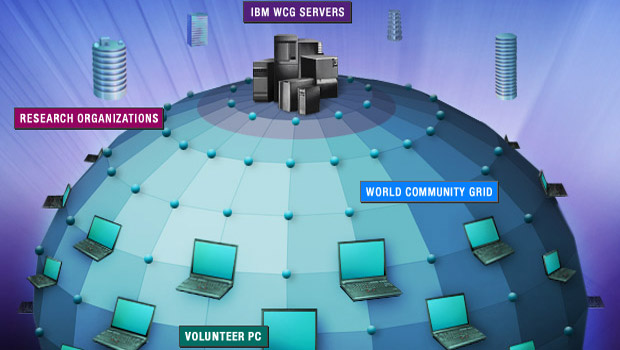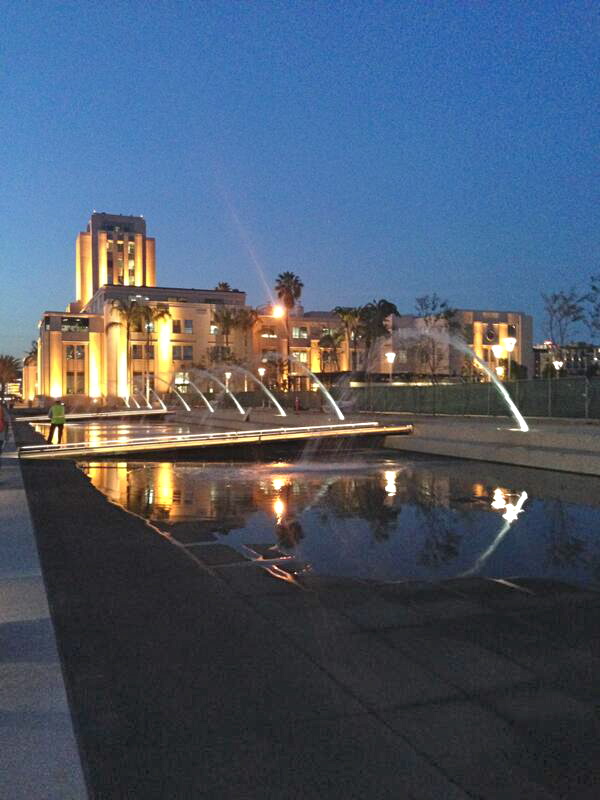Daily Business Report-May 19, 2016
World Community Grid harnesses the surplus processing power of individual computers across the globe, creating an engine of massive computational power to tackle challenging research problems like clean energy, cancer, AIDS, clean water and now, the Zika virus.
UCSD Joins IBM World Community
Grid’s Search for Zika Treatment
Private citizens can help by volunteering their idle computer time to the effort
IBM’s World Community Grid and scientists from Brazil, the Skaggs School of Pharmacy and Pharmaceutical Sciences at University of California San Diego, and Rutgers New Jersey Medical School have launched OpenZika, a project to find drug candidates to treat Zika, a fast spreading virus that the World Health Organization has declared a global public health emergency.
World Community Grid provides massive amounts of supercomputing power to scientists, free of charge. It does this by harnessing the unused computing power of volunteers’ computers and Android devices.
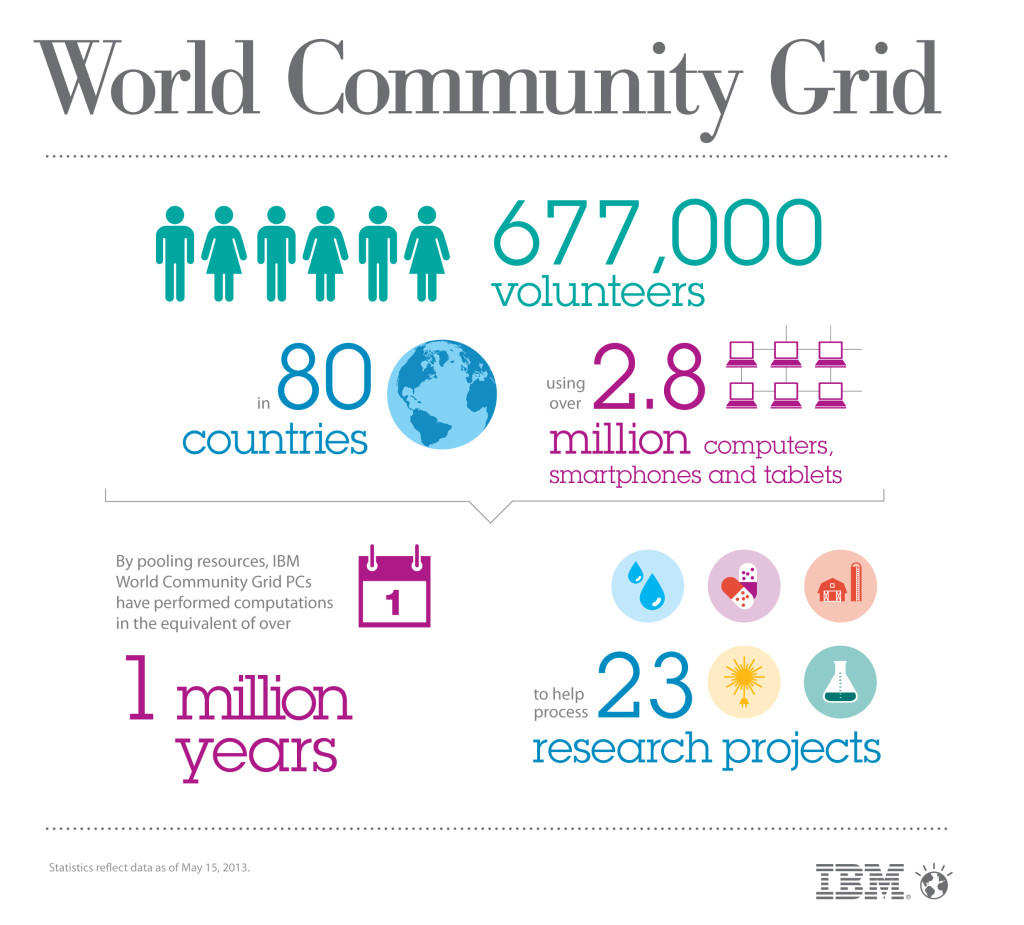
For the OpenZika project, World Community Grid powers virtual experiments on chemical compounds that could form the basis of antiviral drugs to treat the virus, which has been linked to serious neurological disorders. The project will screen more than 20 million compounds from existing databases against models of Zika protein structures with dramatically more speed than in a traditional lab.
Anyone with a computer or Android device is invited to join the OpenZika project as a “citizen scientist.” Volunteers don’t need to provide time, expertise or money to help — they simply run an app on their devices that automatically performs virtual experiments for scientists whenever their machines are idle.
Once the computer modeling phase of the project identifies a few promising candidate drugs, Jair Siqueira-Neto, assistant professor in the Skaggs School of Pharmacy, will use leading-edge robotic equipment to rapidly test them against real-world Zika virus.
“The best part of this project is that it’s truly ‘open’ — we will share all of the data we gather with the research community and general public, further accelerating Zika virus research,” Siqueira-Neto said. “What’s more, researchers not already participating in OpenZika are invited to submit proposals to receive free computing power to support additional Zika projects.”
OpenZika is led by the Federal University of Goias in Brazil, with support from Oswaldo Cruz Foundation (Fiocruz).
Click here for instructions on how to volunteer.
______________________________________________
Smart City Hackathon Eyes Environmental Tech
This winter, San Diego adopted one of the nation’s most ambitious plans to cut carbon emissions in coming decades. Now the city is teaming up with businesses and universities in hopes that coders can build an app for that. More than 200 software developers and technology designers have signed up for the three-day San Diego SmartCity Hackathon and Innovation Program, which kicks off Friday at Weaver Conference Center in UC San Diego’s Institute of the Americas. Read more…
MiraCosta College Gets Funding to
Open Veterans Business Outreach Center
The U.S. Small Business Administration announced $1.5 million in grant funding for six additional Veterans Business Outreach Centers — including one at MiraCosta College in Oceanside.
The grant enables each center to provide entrepreneurial training, comprehensive business assessment and mentoring to active duty service members, veterans and service-disabled veterans, National Guard and reservists and military spouses interested in starting a small business.
The funding will bring the total number of Veterans Business Outreach Centers to 19 nationwide.
Procedures to Remove Elected Officials
Could Go Before San Diego Voters
By City News Service
Procedures for removing a wayward mayor, city attorney or council member from office moved a step closer Wednesday to being put before San Diego voters.
The City Council’s Charter Review Committee — mindful of the 2013 saga in which city officials and residents tried to get rid of the scandal-plagued mayor at the time, Bob Filner — directed the City Attorney’s Office to research and develop potential ballot language.
City Attorney Jan Goldsmith told the committee members that the action could result in a “safety valve” of sorts in the City Charter — the city’s primary governing document.
“The experience that I had and the city had several years ago was that we didn’t have such a safety valve,” Goldsmith said.
“Our office acted with unanimous approval of the City Council — we took various steps that resulted in the mayor resigning,” he said. “There was no process. We created a process, and that’s not healthy.”
Goldsmith’s staff will delve further into the issue and report back at a future meeting. A process that results from their studies would amend the City Charter, so it would go to voters for final approval.
San Diego has wide latitude under the state constitution since it’s a charter city, according to the city attorney, so staff presented several options that will undergo further research.
Among them are a council-initiated process in which seven of the nine members vote to schedule a recall election, or a judicial procedure in which a complaint could be filed in court.
The committee members signaled initial support to a suggestion by the League of Women Voters to include a clause in which an official could be suspended prior to removal, since the process would invariably take a long time.
The discussion centered on the somewhat vague concepts of officeholder malfeasance and willful misconduct of the sort Filner was accused of. Around 20 women alleged sexual harassment on the part of the former mayor and 10-term congressman, who resigned in August 2013 and pleaded guilty a few months later to three criminal charges.
Any charter amendment that would come before San Diego voters in the future would not impact residents’ constitutional right to recall an elected official, Goldsmith said.
The City Charter already contains six provisions in which an elected official would automatically be removed, including conflict of interest in city contracts, favoritism in contracts, collusion in contracts, fraud in payments, payments for office and accepting payments for employment.
The committee members have suggested three more — conviction of a felony, judicial declaration of incompetence — which would be fined by statute, and moving out of the city, if mayor or city attorney, or the district, if a council member.
A future ballot measure would also include various post-removal procedures, generally housekeeping issues like what to call an interim officeholder. Among other things, committee members said they favored taking appointment authority away from a future interim mayor and bestowing the power on the City Council.
San Diego Among Best 25
U.S. Cities for Jobs This Year
By City News Service
San Diego is 21st among the best 25 U.S. cities for jobs this year, according to a list released Wednesday by the website Glassdoor.com.
The rankings took into account ease in getting hired, cost of living, job satisfaction and work-life balance.
San Diego was 15th in the number of openings, but the median home value of $506,000 was the third-highest. Job satisfaction and work-life balance were roughly similar to the other cities.
The city was one of five to appear on the list for the first time.
Bay Area cities San Jose and San Francisco topped the list.
“This demonstrates why so many people are looking to move to the San Francisco Bay Area — job satisfaction, work-life balance and hiring opportunity are unparalleled compared to anywhere else in the country,” said Andrew Chamberlain, Glassdoor’s chief economist.
“However, it’s also important to recognize that for anyone considering a new job in a new city, bigger doesn’t necessarily mean better,” Chamberlain said. “Many of the nation’s mid-sized cities stand out for offering some of the greatest job prospects combined with salaries that allow people to stretch their dollar further.”
Seattle, Boston and Washington, D.C., rounded out the top five. No other California cities made the list.
A Promising Advance in HIV Research
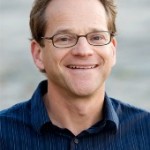
Some people infected with HIV naturally produce antibodies that neutralize many strains of this rapidly mutating virus, and vaccine researchers are searching for ways to induce production of such broadly neutralizing antibodies in everyone.
Now, a team including scientists from The Scripps Research Institute (TSRI) has discovered that a precursor cell that can produce broadly neutralizing antibodies exists in most people — a breakthrough that could contribute to the creation of an effective vaccine against the virus.
Museum of Contemporary Art SD
Selects New Director and CEO
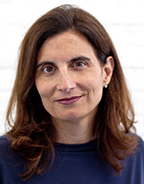
The Museum of Contemporary Art San Diego didn’t need to look far to find its next leader: The La Jolla-based institution is announcing today that it has appointed Kathryn Kanjo as its David C. Copley director and CEO. Kanjo, the museum’s current deputy director of art and programs, has served nine years at the museum in two separate stints dating to the early 1990s. She succeeds Hugh M. Davies, who has been MCASD’s director for the past 33 years. Kanjo steps into the job Oct. 18, the museum’s 75th anniversary. Read more…
http://www.sandiegouniontribune.com/news/2016/may/18/mcasd-taps-kanjo-as-new-director/?track=san-diego
Regulators Let Local Water
Agencies Set Conservation Targets
Times of San Diego
State regulators voted 4-0 Wednesday to let local water districts to set their own conservation targets after a wet winter eased drought conditions in Northern California. The vote by the State Water Resources Control Board ends a statewide conservation order enacted last April that required a 25 percent reduction by all districts. Now only regions where a shortage of supply is anticipated will have to conserve.
“We don’t want to cry wolf but we also don’t want to stick our heads in the sand,” said water board chair Felicia Marcus. “This is a compromise.”
Beginning next month, the San Diego County Water Authority and other local districts will need to estimate how much water they will have access to, and how much they will need for their customers, over a period of three years. Those facing a possible shortage will be required to conserve, but those those with plentiful supplies will not.
Personnel Announcements
Mary Murray Joins Union Bank
As VP and Private Wealth Adviser
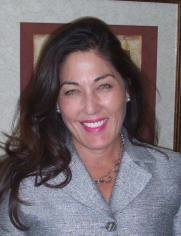
Mary Murray has joined Union Bank’s Private Wealth Management team as a vice president and private wealth adviser based in Rancho Santa Fe, and serving the Rancho Santa Fe and northern San Diego markets.
Murray will work with a team of wealth management professionals across several disciplines to understand the challenges and opportunities facing high net worth clients in their respective regions.
Murray brings more than 35 years of financial sector experience to her new position, specializing in relationship management of high and ultra-high net worth clients, and more than 20 years of management experience and business operations. She spent more than 30 years with Wells Fargo Private Bank in a variety of roles, most recently serving as a wealth management adviser.
Murray is a volunteer and a board member of Angel Faces Inc. She also volunteers at a number of military outreach programs and is an active member of the Rancho Santa Fe Rotary.

